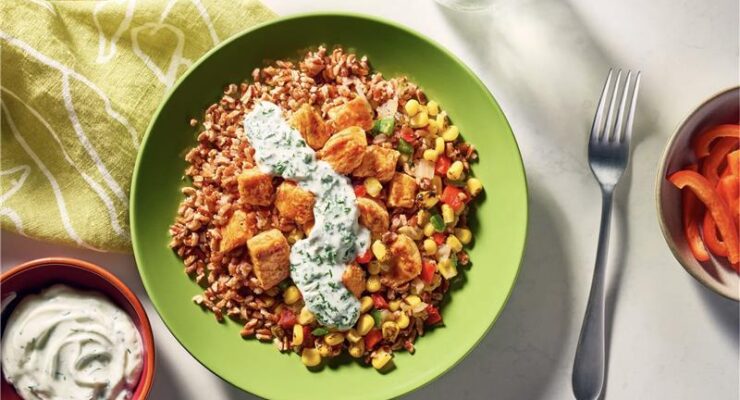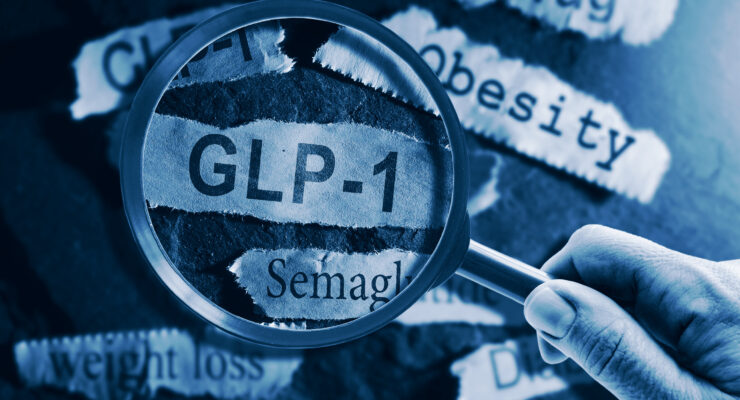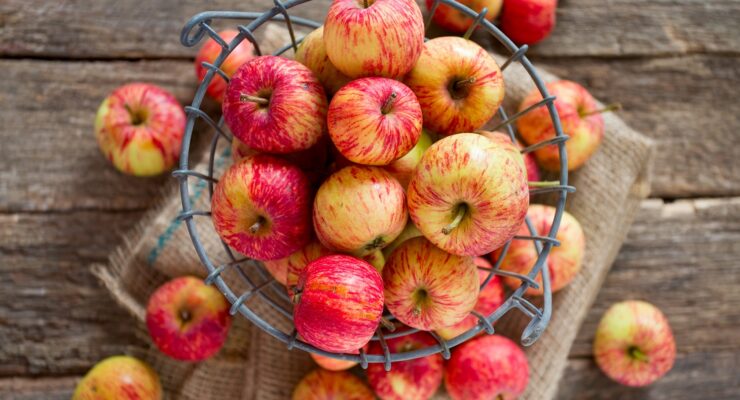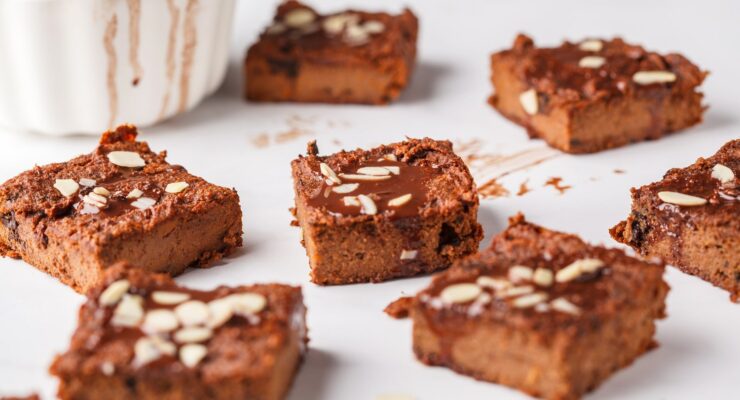The 3 Best Healthy Fats for Weight Loss, According to a Dietitian
Article posted in: Diet & Nutrition Experts’ Corner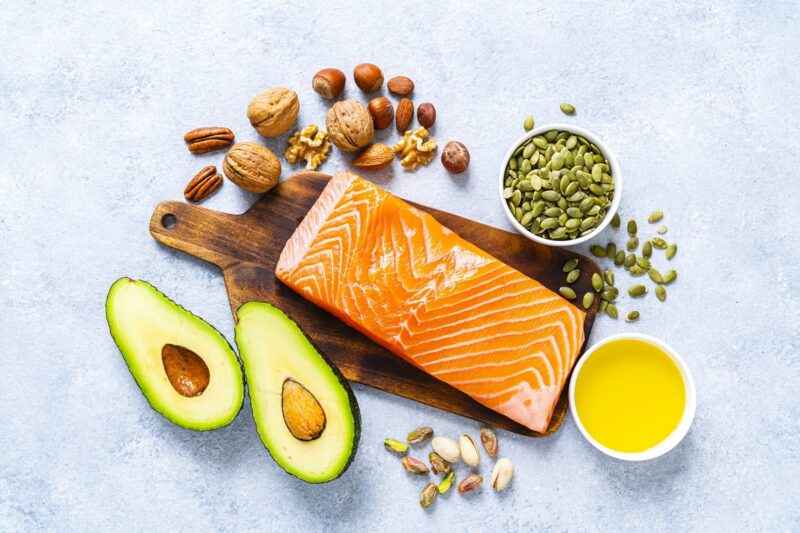
Many people avoid high-fat foods to help them lose weight — and it makes sense. Fats contain more than twice the amount of calories compared to proteins and carbs.
However, research has shown that cutting fats from your diet does not improve weight loss. In fact, doing so may make it harder to stick with a diet plan.
Your body is more complex than the basic math of calories in versus calories out. While you need to eat fewer calories than you burn to lose weight, the foods that make up those calories can determine your success.
Let’s look at why fats are essential for weight management and how to choose the best healthy fats for weight loss. As a bonus, we’ll share three delicious foods to add to your diet to help you reach your weight goals.
How Healthy Fats Help You Lose Weight
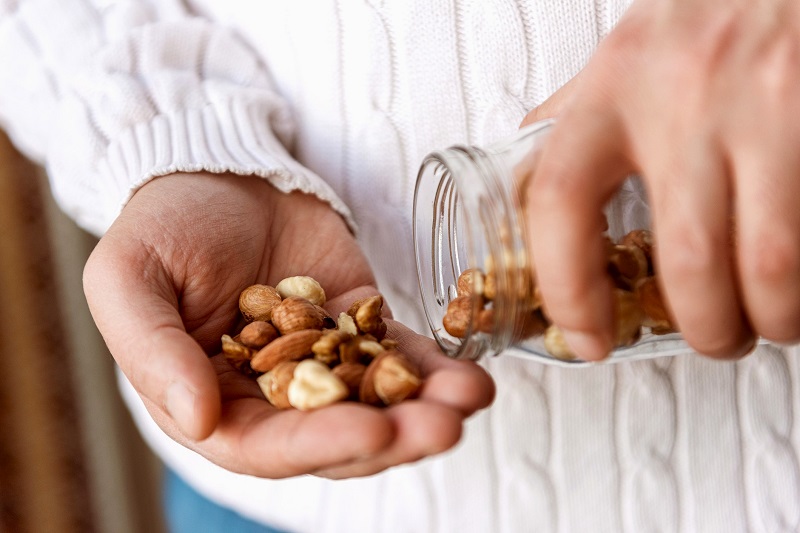
Healthy fats are essential for weight loss because they:
- Manage Hunger. Fats slow digestion, helping you feel fuller, longer. They also stimulate the release of gut hormones that suppress hunger signals, helping you to eat less.
- Balance Hormones. Fats are vital building blocks of hormones. Certain fats may even help manage cortisol levels – a stress hormone linked to weight gain in your body’s midsection.
- Fight Inflammation. Getting plenty of omega-3 fatty acids can help fight chronic inflammation associated with metabolic disorders like diabetes and obesity.
- Improve Nutrient Absorption. Vitamins A, D, E and K require fats for proper digestion and transportation to the various parts of your body that need these essential nutrients. Maximizing your nutritional intake helps your body and metabolism work at their best.
- Taste Good. Fats provide flavor and richness to food, making it more satisfying and enjoyable. Enjoying your meals is key to making lasting diet changes.
How Much Fat Should You Eat for Weight Loss?

The National Institute of Health recommends that adults get 20-35% of their daily calories from fat. Still, you may have heard proponents of ketogenic and some low carb diets recommending a fat intake of up to 75% of your daily calories.
The truth is both lower and higher-fat diets work equally well for weight loss. However, eating more than 35% of calories from fat is linked with obesity in the long term.
Conversely, eating too little fat makes sticking with a diet plan harder. One study showed that people following a moderate-fat diet were significantly more likely to stick with a calorie-controlled diet than people following a low-fat diet.
Keeping fat intake at 25-30% (42-50 grams for 1,500 calories) is a good target for most people, though your individual needs may vary based on personal health, fitness, energy and hunger levels.
Equally important are the types of fat you’re eating. Swapping healthy fats for unhealthy fats is critical for reaping the weight loss benefits of fats in your diet.
How To Choose Healthy Fats Vs. Unhealthy Fats

Unsaturated fats should make up most of your fat intake as they improve health and aid weight loss. Seafood and plant-based foods like olive oil, salmon, avocado, nuts and seeds are the best sources of these fats.
Saturated and Trans Fats are found in processed foods and red meats, and can cause inflammation, weight gain and heart disease. The Dietary Guidelines for Americans urge people to limit their intake of saturated fats to 10% or less of total daily calories.
Easy Healthy Fat Swaps
- Eat fish instead of red meat a few nights per week. Try fish tacos, burgers or grilled fish filets.
- Replace mayonnaise with mashed avocado for sandwiches and deli salads.
- Top salads with nuts and seeds instead of bacon bits or buttery croutons.
- Sauté foods with olive oil instead of butter.
- Snack on vegetables with hummus instead of crackers with cheese.
- Spread peanut butter on toast instead of full-fat cream cheese or butter.
3 Best Healthy High-Fat Foods for Weight Loss
Most foods contain a blend of various types of fats. However, these three delicious options are dietitian-approved to support weight loss due to their optimal balance of healthy fats and other nutrients.
1. Fatty Fish
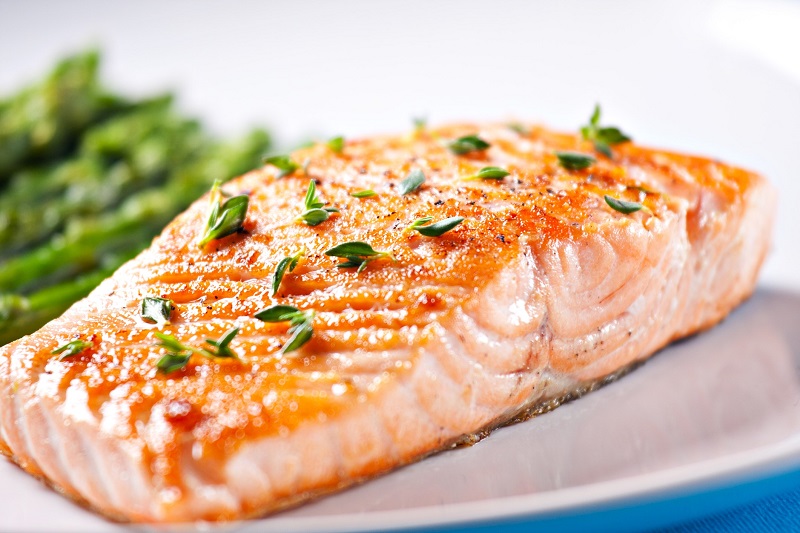
Salmon, mackerel, cod, sardines and tuna are all rich in omega-3 fatty acids, specifically EPA and DHA. Research suggests incorporating more fish oil into your diet could help shrink your waistline. Although, further investigation is needed to say for sure.
One reason omega-3 fats may help with weight loss is by reducing inflammation. Chronic inflammation can lead to insulin resistance and other metabolic issues associated with weight gain. By increasing omega-3 intake, it’s possible to combat inflammation and improve metabolic health.
You can get omega-3s from fish oil supplements, but eating fish improves your body’s absorption of these healthy fats. Plus, fish is an excellent source of protein and other essential nutrients. Experts recommend aiming for eight ounces of fatty fish per week.
2. Nuts and Nut Butters
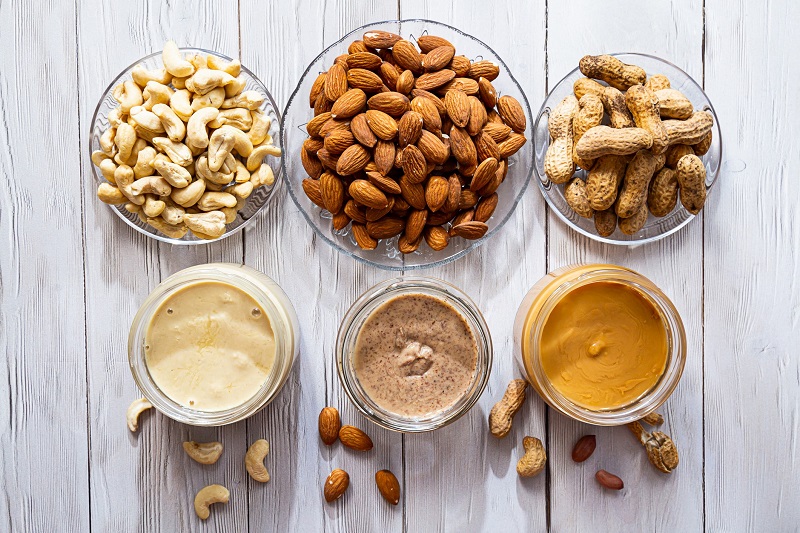
Are nuts good for weight loss even though they are high in calories and fat? Research suggests yes. Several studies have shown that including nuts in a calorie-controlled diet does not lead to weight gain and may even help with weight loss.
Nuts are high in fiber and protein, which helps manage hunger, naturally reducing calorie intake. They’re also a great source of unsaturated fats, which can improve metabolic health and weight management when substituted for refined carbohydrates and saturated fats.
Moreover, researchers found that eating nuts regularly (about a handful per day) reduces the risk of weight gain and obesity later in life.
3. Olive Oil

When considering the best oil for weight loss, olive oil is at the top of the list. Rich in monounsaturated fats, research has shown that diets that include olive oil instead of saturated fats produce more weight loss. These results may be due to its low omega-6 fatty acid content.
Omega-6s are a type of unsaturated fat shown to cause inflammation, particularly when omega-3 levels are low. In addition to olive oil, avocado, flaxseed, and coconut oil have low levels of omega-6, while soy, corn and sunflower oil contain high amounts.
Final Tips for Including Healthy Fats in Your Weight Loss Plan
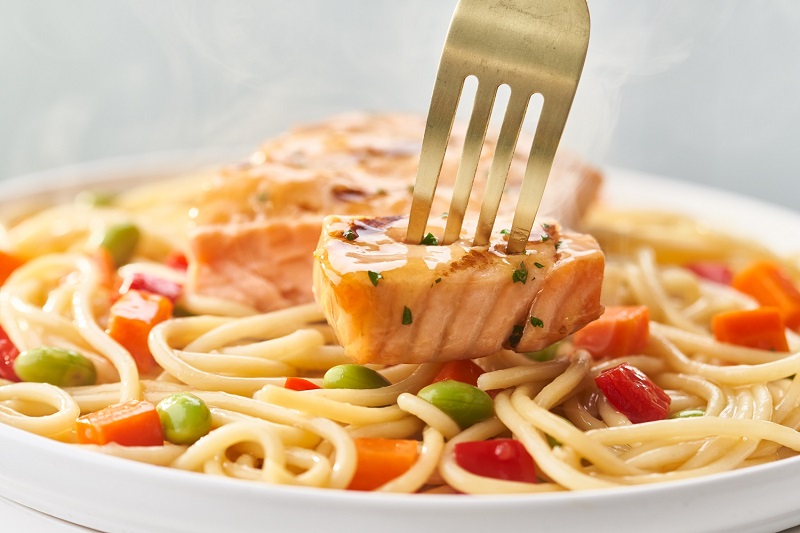
While there’s no need to fear fats, it is possible to go overboard, even with healthy fats. Look at your current diet to see where you can replace saturated fats with healthier fats (rather than just adding on healthy fats) for the best weight loss benefits.
Choose fish, nuts, seeds, avocado and plant-based oils more often than red meats and processed foods. Doing this will help you manage hunger, fight inflammation and fuel a healthy metabolism so that you can reach your goals.
If you’re not one for math or are feeling overwhelmed thinking about how to put together the right balance of nutrients to get you results, structured programs like Nutrisystem can help get you started on the right path.
Nutrisystem’s plans are designed by dietitians to provide healthy fats within national health guidelines so that you get the nutrition you need to reach your goals without the guesswork. These plans show you how to pair convenient ready-made meals and snacks with grocery items rich in unsaturated fats, such as fish, nuts, olive oil and seeds. On the plan, these foods are called “PowerFuels,” and you’ll receive guidance on exactly how much you need to get results.
Plus, you’ll have access to a team of coaches to help further customize your plan, so you’re never left to figure it out alone. Once you get the hang of it, you’ll know how to incorporate these healthy fat foods into your everyday eating for long-term weight loss success.


